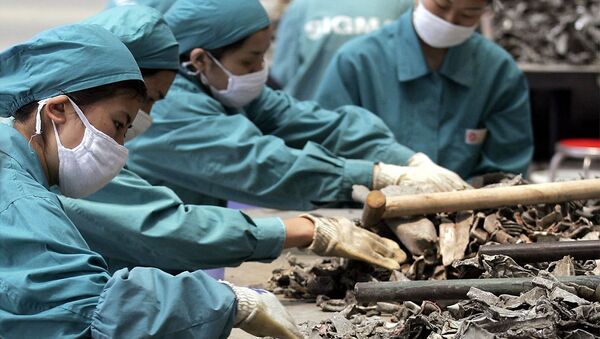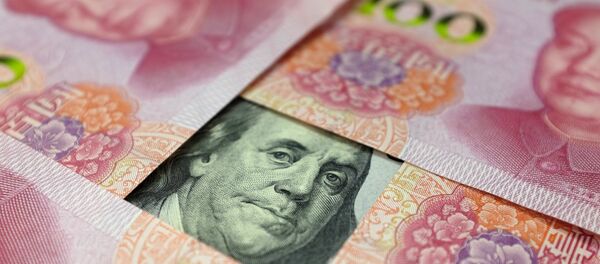Radio Sputnik talked about the trade spat between China and the US with Dr. James Wang, professor of the Department of Economics and Finance at the University of Hong Kong.
Sputnik: How do you think this new round of tariffs will affect China's economy in the long run and the short run?
James Wang: I think that in the short run the impact will, obviously, be felt mostly in the export sector, specifically along the coastal provinces. There will be packets of failure, perhaps, of certain smaller firms whose profit margins are pretty thin to begin with. According to several estimates, the impact on unemployment will affect from half a million to a couple million people.
James Wang: That's spot on. In fact, Walmart, many other retailers and a number of associations in the US sent a letter to the trade representatives in the US making precisely this point, that the US consumers are expected to see the brunt of the impact if consumer goods were taxed. Essentially, these tariffs are a form of tax.
Sputnik: The 5,745 items on that list are things that Americans buy every single day, from furniture to air conditioners, smaller electronic items and household items; they're going to feel this, especially during this big shopping season which is coming up, which is the time when all the American and Chinese companies are seeing their biggest sales. Do you think that that's going to really create the effect that Trump was hoping it would create?
James Wang: Transmission of the impact of the tariffs might be a little complicated, and it could be a combination of things. The retailers could pass on these tariffs in the form of price hikes, or, in some cases, they could absorb some of their losses themselves. However, the point is correct that you will see some impact with the holiday shopping season coming up, but it will be after the midterm elections. I think it's a very significant event and depending on how this comes out, it could impact the administration's posturing.
Sputnik: The Americans like to start their Christmas shopping early; November is when you start; after Halloween and Thanksgiving, people start getting their Christmas tree decorations out and start shopping. I think that the real danger is going to lie in the tariff increase to 25%, which is tagged to the start of 2019; it's now 10% and it's going to be 25% and that's going to be pretty ugly.
Sputnik: Actually, I've heard some figures that indicate five percentage points could be added to the current consumer price index; based on the recent CPI release, that would boost inflation to over 3.2% year-over-year. That would be something significant; that would be felt by American families and by policymakers that get voted in.
James Wang: That's' correct. I think that the White House or at least the advisors that they rely on right now are feeling very good. The trade war, though, is coming at a point when the US economy is particularly strong and growing at a fast clip. However, the impact of the tax cuts passed last year probably won't last forever. Early next year, the expectation is that the short-term impact would probably wear off a little bit and when the economy is not growing as robustly and inflation is also rearing its ugly head, then we might see a different kind of attitude.
The views and opinions expressed in this article by Dr. James Wang are solely those of the speaker and do not necessarily reflect Sputnik’s position.




